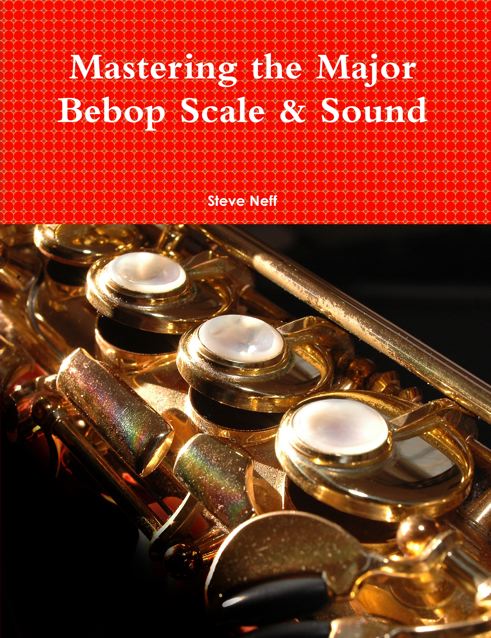Here’s another Theo Wanne tenor saxophone mouthpiece for you to check out. I just received a ton of these and I’m working my way through them as you might have noticed. This is a wood version of the Gaia tenor saxophone mouthpiece. The Gaia is said to be a run at the florida link type concept. It has a medium baffle that does indeed remind me of my florida links. The difference hear is in the chamber. The Gaia looks to have a much larger chamber than the florida links I have owned. It looks closer in size to my NY links. This mouthpiece is a .110 tip opening. I was hoping for a .105 tip as that is what I liked the best when I tried the metal Gaia out. This tip feels a little larger than I normally like but it was still easy to play.
Theo Wanne Wood Gaia Tenor Saxophone Mouthpiece
- Appearance:
Again, as with all Theo Wanne products, this mouthpiece looks great. This one is made out of a wood compound that is a mix of wood and resin. It is advertised as never warping or cracking which is a great plus in my book. It has the logo and “Gaia” engraved on it in gold as well as a gold band around the end of the shank. It also comes with a gold “enlightened” ligature. The rails and tip are perfect and even. The chamber and baffle look as good as it gets.
- Tone:
The Gaia has a medium sound that is right in the middle of bright to dark. I think it leans a little bit towards the bright side of things. I found this mouthpiece to be vibrant and the tone was nice and thick sounding. The wood material seems to give it a little more textured sound that to me adds character to the tone. At times i even felt like the tone was a little smokey sounding. Up high the notes were full sounding as was the low end. The .110 tip opening felt a little too big for my tastes. I would have loved to try this in a .105 tip.
- Intonation:
Intonation was great with this mouthpiece and within normal limits.
- Control:
The Gaia was easy to play for me. It played great down low and up into the altissimo and the tone was even up and down the horn.
- Volume:
I could get nice and loud with this mouthpiece. I’m not sure it would be my choice for a loud funk gig but it does have a beautiful lush sound to it that would be perfect for some straight ahead gigs. I did find it louder playing than the Ambika.
This is another great mouthpiece by Theo WanneFor more information on the Gaia tenor sax mouthpiece visit www.theowanne.com .





compare wood with hard rubber,which one has more resistence in the same tip opening,
For me i think the wood had a little more resistance. It might have just been a difference in the mouthpieces though more than the material.
Where can I order a wooden tenor mouthpiece?
Mark, In the review above, there is a link to Theo Wanne mouthpieces. You click on the link and it will take you to a site you can order from. Steve
I love this piece, nice, soft and warm. When played for a while I feel it gets a little saturated with water, which dulls the sound partially. I don’t think this would last an entire gig, not that I am a professional.
Does it depend on the type of wood used? A very hard wood, for example ebony, would probably not absorb so much moisture; or, the wood, it could be treated with something non-toxic that waterproofed it.
From what I remember the Wanne wood mouthpieces use a wood that is mixed with resin and guaranteed to never warp or crack.
Ebony is not a good wood for this kind of service. It cracks very easy Usually used for decoration. This wood I believe is cocobollo. It is in the rose wood family. Yes it is impregnated with resin. It’s called stabilization. But it still needs to be oiled regularly. It absorbs This is a nice piece but needs to be taken care of. Like a fine flute
Choose you this day whom ye shall serve
It does crack if not properly taken care of. This is why they discontinued them. They were cracking at the table. I feel people who used them did not take care. These needed to be oiled regularly and dried right. Like a flute
Does ebony break easily? Am I wrong or is the material used for the valuable clarinets, the best? So why, if there is a better material, the clarinets continue, those of higher quality, to build them in ebony? Maybe just because it sounds better? Well, even this does not seem a feature to be overlooked, if only it were!
I wonder one thing: if a wooden mouthpiece absorbs moisture, does it not expand, increase in volume and, in a similar way, “change of tonality” or intonation? As if on a tenor saxophone we used a “bigger” mouthpiece for baritone sax? And, also if this volume increase is not so large, should not the mouthpiece “swell”, change the point of intonation on the cork of the neck?
Ebony wood cracks easily, and warps. The wood in clarinets is grenadilla and rosewood, or resin and wood. The Theo Wanne mouthpieces do absorb water and oil, this is why they need to be taken care of. Oil them regularly and they will stay sized and happy, don’t oil them and they will absorb water and dry, absorb and dry, and soon develop cracks. Cracks are a direct result in fast drying. Wood needs to be alive, so one tricks it with oil. The right oil does not evaporate. As far as playing, absorbed water will deaden the tone a little bit. Oil will keep it better but water will always find a way in, but the oil will let it dry evenly and slow. Don’t get me wrong, these mouthpieces are seriously awesome, but most folks don’t want a take care item, and I talked with the Theo Wanne company, those folks who have no business with fine instruments were the biggest complainers. Customers with complaints are a no no, thus it was more of a pain in the butt to keep the wooden ones. High end flutes are the same , they need tender love and care.
“Ebony wood cracks easily, and warps. The wood in clarinets is grenadilla and rosewood, or resin and wood “.
Are you sure? Is not ebony used for the “best” clarinets? Did you do a search on Wikipedia?
P.S. My teacher of sax who, in my opinion, has very little care of his instruments, has long used a Pomarico Italian mouthpiece for tenor sax in ebony, handcrafted by Mister Pomarico: beautiful and dark sound, and the mouthpiece in ebony, despite the few (or nil) treatments, it never cracks, it has never broken or ruined!
On the other hand, ebony is very expensive!